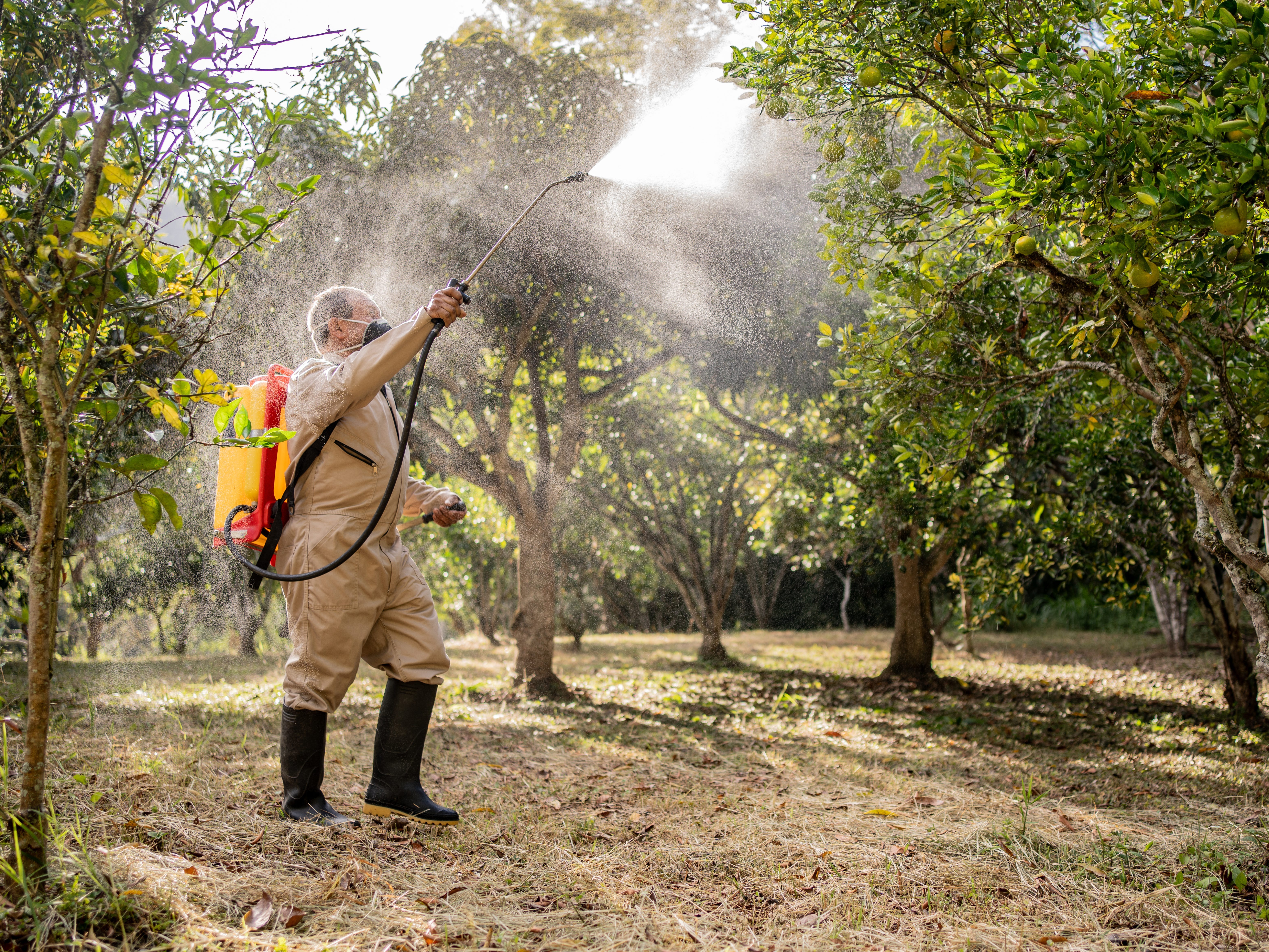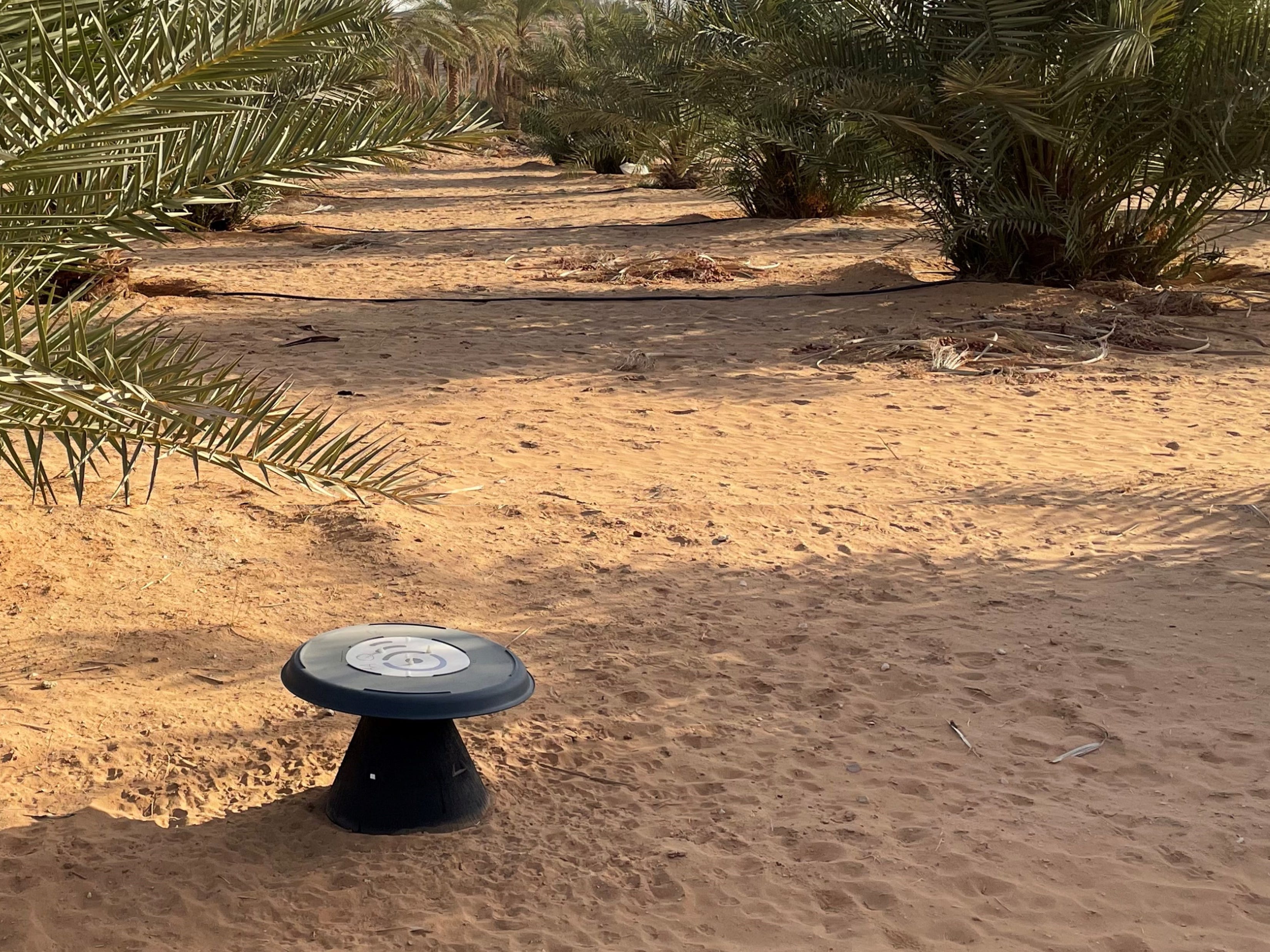
Frazao Studio Latino/Getty Images
Finding and getting rid of a pesky bug in your home can be a challenge. On a large farm, this task can be even more difficult and costly.
Many farmers turn to pesticides to eliminate bugs and prevent crop damage. The US Department of Agriculture predicts that farmers will spend $18.1 billion on pesticides this year. Monique Rivera, an assistant professor of tree fruit entomology at Cornell Agritech, said these chemicals are not only expensive for farmers, but repeated exposure can also be harmful for field workers.
This makes insect monitoring and early detection especially important. “If you miss the indications of that first generation, you’re essentially wasting the insecticide,” Rivera said.
To help farmers stay one step ahead of these bugs and use pesticides more efficiently, Spotta, a UK-based tech startup, developed Internet of Things sensors and AI programs that can automate insect monitoring.
“If your pet gets fleas, do you want to know when they get one flea, or do you want to find out when they’re throughout your entire house?” said Robert Fryers, Spotta’s CEO and cofounder.
Spotta’s sensors use traditional trap mechanisms, like pheromones, to attract a specific species. However, instead of checking traps and performing manual crop inspections, which can be time-consuming and labor-intensive, farmers can leave these sensors in the field and forget about them until a problem arises. The real-time monitoring data from the sensors allows farmers to be smarter about where they use pesticides.
“Any way that you can refine that exposure and reduce the amount of sprays, it’s not only cheaper for the grower, but it’s better for everyone that works in the orchard, from the owner all the way down to the person who’s harvesting the fruit at some point,” Rivera told Business Insider.

Courtesy of Spotta
Adapting IoT sensors for smarter farming
In 2020, Spotta launched its first insect monitoring product: a sensor for bed bugs in hotels. But, Fryers said this was a “relatively simple problem” given it was indoors, dry, and didn’t have to interact with many different bugs.
Adapting this product to the red palm weevil, which damages date palm trees, was a different challenge. Spotta works with date palm plantation farmers in the Middle East, where Fryers said the existing sensors can reach 194 degrees Fahrenheit, are difficult to regularly access, and must differentiate between various types of bugs.
To account for this dynamic environment, the sensor helps with presence detection and response timing. The sensors use image-based AI algorithms to first identify the targeted insect. Fryers said this is particularly powerful for customers because the tech can detect bugs around the clock.
“For a lot of insects, they only find the problem after the damage has been done,” Fryers said. “Being able to correctly discriminate between different insects really early in that life cycle, when there’s just a handful of them, is really important.”
The IoT technology, which is a system of devices that can connect and share data, continuously transmits the insect activity data in real time to a centralized AI-powered platform. This tool can then give farmers instructions on when and how to respond to infestations.
The platform uses AI to sift through the insect activity data from the sensors in the field, and pulls in external information such as weather patterns, farming history, and crop knowledge to create a predictive model for infestations, Fryers said. This knowledge can help farmers refine their use of pesticides and prevent overspraying.
Fryers said Spotta’s early warning system for date palm farms in Qatar and the United Arab Emirates has allowed farmers to detect infestations 3 months earlier on average.

Courtesy of Spotta
Modernizing pest management
Other pest management companies, like FarmSense and Trapview, have developed similar AI- and IoT-based products, but development and adoption of this agriculture tech has been slow. Fryers said that when he started Spotta, he was surprised by how little investment was going into the technology.
“I was expecting to find all of the big players, the agricultural machinery companies, the agrochemicals companies, the pest control companies to be really, really busy in this space,” Fryers said. “For me, it seems so obvious that the writing is on the wall for the old way of doing this, and it’s going to change.”
Rivera said there is a lot of room for innovation in the industry, but tech companies entering the space will need to have a lot of “initial investment” to find the right audience, such as educating clients about the technology. Understanding the community can help these startups thrive and become more integrated with growers.
“Word of mouth in agriculture is major,” Rivera said. “If somebody down the street is using something and they think it’s great and they have clout within that community, that’s one way that these technologies could spread more easily throughout production systems.”
The post A tech startup is using IoT sensors and AI to help farmers cut hefty pesticide costs appeared first on Business Insider.




